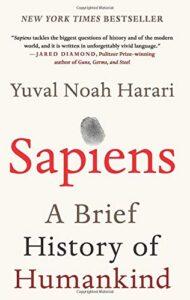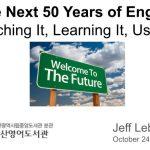 Summary
Summary
“Sapiens: A Brief History of Humankind” by Yuval Noah Harari is a comprehensive exploration of the history and impact of Homo sapiens on the world. The book is divided into four main parts, each focusing on a significant era of human history.
The Cognitive Revolution
The first part of the book deals with the Cognitive Revolution, which occurred around 70,000 years ago. Before this period, Homo sapiens were just one of several human species walking the Earth. However, something extraordinary happened that set Homo sapiens apart: the development of cognitive abilities that allowed for complex language, planning, and social organization. This cognitive leap gave Homo sapiens the tools to dominate other species and even drive them to extinction. Harari argues that this ability to create and believe in myths and stories was a crucial factor in the success of Homo sapiens. It allowed for cooperation in larger groups and the ability to build complex societies.
The Agricultural Revolution
The second part focuses on the Agricultural Revolution, which took place around 12,000 years ago. Harari posits that this was not necessarily a step forward for humanity. While agriculture allowed for the development of permanent settlements and led to an increase in the human population, it also resulted in a more difficult life for the average person. People had to work harder to cultivate crops compared to the relatively easier life of foraging. Additionally, the Agricultural Revolution led to social stratification, private property, and consequently, social inequality. It also set humanity on a path of manipulating the environment in increasingly drastic ways.
The Unification of Humankind
The third part discusses the various “unifiers” of humankind, such as money, empires, and religions. Harari explores how these constructs serve to create order and shared identities among large groups of people. Money, for example, has no intrinsic value but gains its worth from the trust people place in it. Similarly, empires and religions often spread their influence not just through coercion but also by creating a shared sense of purpose and identity. Harari delves into how these unifiers have both positive and negative impacts. They can lead to peaceful coexistence and cultural exchange, but they can also result in oppression and inequality.
The Scientific Revolution
The fourth part of the book is dedicated to the Scientific Revolution, which began in the 16th century. This revolution was not just about technological advancements, but also about adopting a new way of understanding the world through observation and logic. Harari argues that the willingness to admit ignorance and ask questions has been a driving force behind scientific progress. The Scientific Revolution led to the exploration of new lands, the establishment of capitalist economies, and the technological advancements that have shaped the modern world. However, it also led to unforeseen consequences like climate change, and the exploitation of non-European peoples through colonialism.
The Present and Future
In the concluding sections, Harari discusses the present and potential future of Homo sapiens. He examines the ethical and philosophical questions arising from technological advancements, particularly in the fields of biotechnology and artificial intelligence. Harari questions whether these advancements will lead to greater happiness and longevity, or whether they will result in new forms of inequality and possibly even the extinction of Homo sapiens.
Throughout the book, Harari challenges the reader to consider not just the events of the past, but also the narratives and myths that shape our understanding of those events. He argues that while Homo sapiens have made incredible advancements in science and technology, these have not necessarily led to improvements in overall happiness and well-being. The book serves as both a history of our species and a cautionary tale about the potential challenges we face in the future.
By weaving together history, anthropology, and philosophy, “Sapiens” offers a compelling overview of the journey of Homo sapiens from insignificant apes to rulers of the Earth, while raising important questions about where we go from here.
Vocabulary Words
- Comprehensive – Including all or nearly all elements or aspects.
– The book offers a comprehensive overview of human history.
- Cognitive – Related to mental processes like thinking, perception, and memory.
– The Cognitive Revolution marked a significant leap in human mental abilities.
- Posit – To assume or put forward as a basis for argument.
– Harari posits that the Agricultural Revolution was not an unqualified benefit for humans.
- Stratification – The arrangement or classification of something into different groups.
– Social stratification became more pronounced with the advent of agriculture.
- Intrinsic – Belonging naturally; essential.
– Money has no intrinsic value but is a construct of human society.
- Coercion – The practice of persuading someone to do something by force or threats.
– Empires often spread their influence through coercion.
- Delve – To investigate or research deeply.
– Harari delves into the complexities of human myths and narratives.
- Unforeseen – Not anticipated or predicted.
– The Scientific Revolution led to unforeseen consequences like climate change.
- Exploitation – The action of treating someone unfairly in order to benefit from their work.
– The era of colonialism was marked by the exploitation of indigenous peoples and resources.
- Ethical – Concerned with moral principles.
– The book raises ethical questions about biotechnology and artificial intelligence.
- Philosophical – Related to the study of fundamental questions about existence, knowledge, and ethics.
– Harari takes a philosophical approach to historical events, asking what they mean for human values and society.
- Anthropology – The study of human societies and cultures and their development.
– “Sapiens” incorporates elements of anthropology to explain the evolution of human societies.
- Cautionary – Serving as a warning.
– The book serves as a cautionary tale about the potential challenges humanity faces.
- Compelling – Evoking interest or attention in a powerfully irresistible way.
– Harari presents a compelling narrative that challenges our understanding of history.
- Myths – Traditional stories or legends that are believed to have a historical basis but are not proven.
– The book explores how myths and narratives shape human societies and their actions.
Discussion Questions
- What do you think was the most significant revolution discussed in “Sapiens”?
- Do you agree with Harari’s view that the Agricultural Revolution had both positive and negative impacts?
- How do “imagined realities” like money and religion influence human behavior and society?
- What role has the Scientific Revolution played in shaping modern ethical dilemmas?
- How has the concept of happiness evolved throughout human history?
- What are the ethical implications of advancements in biotechnology and artificial intelligence?
- How do myths and stories contribute to social cohesion and shared identities?
- What are the potential consequences of climate change for the future of Homo sapiens?
- How has the concept of “family” changed over time?
- Do you think the advancements in science and technology have led to a better quality of life?
- How has capitalism influenced social and economic disparities?
- What role does language play in the cognitive development of Homo sapiens?
- How do you envision the future of Homo sapiens?
- What are the pros and cons of globalization as discussed in “Sapiens”?
- How does Harari’s multidisciplinary approach affect your understanding of history?
- What are the potential risks and benefits of gene editing technologies?
- How has the internet changed the way we form “imagined communities”?
- Do you agree with Harari’s assertion that human progress doesn’t necessarily lead to increased happiness?
- How do you think the COVID-19 pandemic fits into the broader scope of human history?
- What are the implications of the “unification of humankind” for cultural diversity?
Debate Topics
- Was the Agricultural Revolution a step forward or backward for humanity?
- Do advancements in biotechnology and artificial intelligence pose more risks than benefits?
- Is capitalism the most effective system for social and economic organization?
- Does the Scientific Revolution bear responsibility for current environmental crises?
- Are “imagined realities” like religion and nationalism more divisive than unifying?
- Should there be ethical limitations on scientific research and technological advancements?
- Does human history show an overall trend toward peace and cooperation or conflict and division?
Views: 55






Leave a Reply